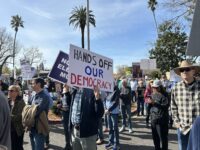I attended a lecture today. The topic was Jews in the 21st Century, but it covered the 20th century as well. All told, it was not a bad talk, if a bit too long and somewhat repetitive. As it pertained to Israel, I found no basic disagreement with its premise that extremist intolerance on the part of both Israelis and Palestinians provides no road to peace.
However, I was struck by one element of the presentation, namely that the speaker referred to Israeli extremists as ultra-orthodox Jews while Palestinian extremists were referred to as Islamo-fascists. The speaker had gone to some lengths to decry the calling of Israelis “Nazis,” yet did not seem to notice that he was calling Palestinians “Nazis” by designating them as fascist. So, in the midst of attempting to draw a parallel between the intolerance of extremists on both sides of the conflict, he revealed his own prejudice and willingness to engage in stereotypical name-calling.
Name-calling attempts to frame debate linking people with debased behavior or characteristics. The linkage need not call upon facts, statistics, actual observation or documentation. As a pejorative device, name-calling exercises power by tapping into implicit or explicit bigotry, prejudice, small-mindedness and intolerance.
Whether it’s Rush Limbaugh calling women “Femi-Nazis,” whites calling African Americans “Jungle Bunnies,” Arabs being referred to as “Rag Heads” or extremist Palestinians designated “Islamo-Fascists,” the intent is the same: to diminish and objectify others in order to justify one’s own preferences, bigotry, hatred or aggression. In this way, fueled by intemperate and aggressive speech, cycles of conflict are propagated,.
Today’s speaker touched upon the torment inflicted on Europe’s Jews during the Holocaust, none of which would have happened without name-calling. Designating Jews as “vermin, pests and parasites” Adolph Hitler’s Third Reich and his propagandist Joseph Goebbels used language as their tool of choice in mobilizing German society to accept the extermination of millions. Today, language continues to be used as an effective agent of dominance and aggression.
Each of us forms likes and dislikes, some born of the senses and others born of experience; this is completely human. But as we grow older and examine our own views and attitudes, we often discover the roots of our preferences are wholly insubstantial. Upon close inspection we find all our stereotypes about others are wrong. Looking deeper, we can understand that our everyday speech reinforces our discrimination. Only by applying mindfulness can we discover how automatically we objectify others.
Mindful speech requires slowing down, creating a gap between our feelings and our mouths. It can be done, but it takes practice and is a challenge in our speedy culture. A good way to begin is with simple silence, listening to others then just watching our mind. Sometimes when I feel speedy, I count to three before speaking. In many interactions, a smile and a nod of acknowledgement are often sufficient.
All over the world, people inflict terrible pain and suffering on others every day. We let the differences between us become the excuse for terrible behavior. We cannot individually solve the problems of the entire world, but we can be more careful about what we say to and about others. Such mindfulness may not change everything for the better, but as my grandfather used to say, “Couldn’t hurt!”




